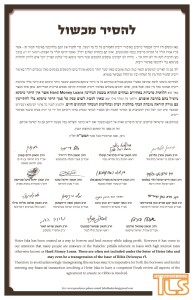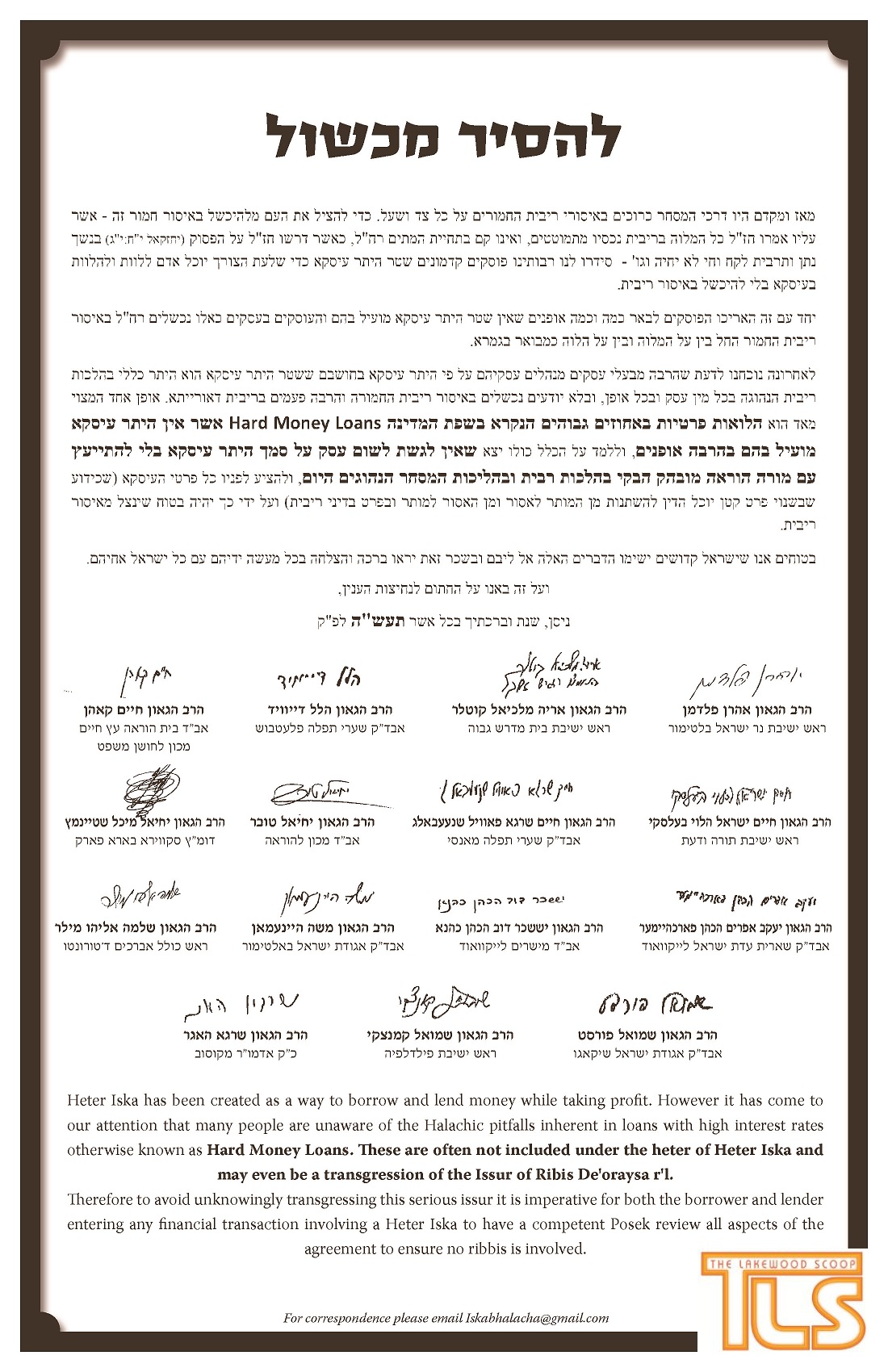 CLICK TO ENLARGE: TLS was asked B’shem Rabbonim to publicize this Kol Korei: In the ever changing world of business, it has become increasingly common for business people to fund business projects while using funds from an Investor. Often, this would mean that the Capitol available to them comes at a much higher rate than they would be paying to any Lending Institution.
CLICK TO ENLARGE: TLS was asked B’shem Rabbonim to publicize this Kol Korei: In the ever changing world of business, it has become increasingly common for business people to fund business projects while using funds from an Investor. Often, this would mean that the Capitol available to them comes at a much higher rate than they would be paying to any Lending Institution.
Many people are under the impression that because they signed a Heter Iska it is permissible to give or take any amount of interest. While in reality there are many instances where a Heter Iska would not permit a particular transaction and the Isur Deoryasa of Ribis r’l may be transgressed. The lack of knowledge is what prompted us to bring the awareness of this to the Tzibbur.
[TLS]


Please note: The correct spelling is Capital NOT Capitol
And capitol should not capitalized
Capitol is capitalized when referring to the Capitol in Washington, D.C., home of the Congress. Unfortunately, the Congress, which is capitalized does not usually act on principle (which should not be confused with principal), nor does it represent our interest. Instead, it represents special interests, which enables members of Congress to accumulate a lot of capital working in the Capitol.
What diff does it make what the interest rate is regarding heter iska ? Is there an instance where if the Iender gives the borrower 5% rate it’s muttar but a 15% rate is assur ? Im not a ribbis expert but I never heard of such a thing. If anyone who knows can clarify it would be greatly appreciated. thanx.
TruthLaser –
Your comment raised my interest. But I hope that the folks sitting at the Capitol would help lower the interest I need to pay for my working capital loan. The rate is so high it almost feels like a hard money loan!!
TG
Soft money given to Congressional campaigns is what keeps hard money loans hard. You might have to work in the Capitol to get a loan. Sometimes, you have to go along to get alone.
“What diff does it make what the interest rate is regarding heter iska ? Is there an instance where if the Iender gives the borrower 5% rate it’s muttar but a 15% rate is assur ? Im not a ribbis expert but I never heard of such a thing. If anyone who knows can clarify it would be greatly appreciated. thanx.”
The argument made was that since the basic structure of a Heter Iska is a partnership, when the numbers are wildly out of line with what a partnership can expect to receive it is not a true partnership.
BTW, there are two Shiurim give. Rav Shlom Zalman Aurbach gave a Shiur of 24%!!! And it is widely brought down in the name of on of the early Belzer Rebbes (!) 16%. Both are more than the amount that standard Heter Iskas are today.
Lastly, even if the amount is to high, it is not an Issur Deoraisa (for reasons that are complicated to explain here)